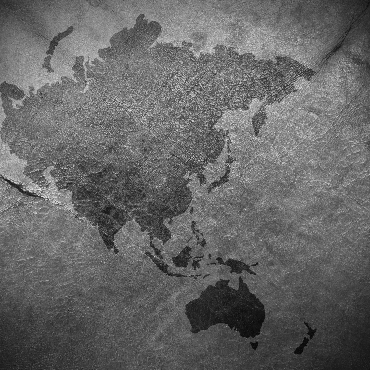BEIJING'S FORWARD-DEPLOYED FORTRESS IN THE SOUTH CHINA SEA
Beijing's significant military investments in the South China Sea over the past decade are well-documented. Piercing the "first island chain" (the latticework of military cooperation among the United States, Japan, Taiwan, and the Philippines) is a publicly-telegraphed first-order objective for the People's Liberation Army, as is preparing to win a war over Taiwan. What has been less understood until recently is the scope of the People's Republic of China's (PRC) military investments to achieve these objectives. The Washington Post recently reported on a study from the Long Term Strategy Group that puts the scope of Beijing's military assets on Hainan Island at $50 billion, dwarfing the value of all U.S. military facilities in Hawaii. The PRC has also invested over $10 billion in military construction throughout artificial atolls in the South China Sea. (Washington Post, October 31, 2024)
INDONESIA'S AGREMENT WITH BEIJING MUDDIES THE WATERS
A recent slew of business agreements between the PRC and Indonesia, collectively worth $10 billion, is raising eyebrows throughout Southeast Asia. Among the deals is an agreement to jointly develop fisheries, conduct oil and gas exploration, and invest in maritime safety. The area in question is the North Natuna Sea, the southernmost area of the South China Sea. Natuna Island, the primary land feature in the area, lies squarely within Indonesia's exclusive economic zone (EEZ). It also lies within the PRC's disputed "nine-dash line." In the wake of these deals, Voice of America reported the possibility that Indonesian officials may have implicitly recognized Beijing's territorial claims in the South China Sea. Leaders in Jakarta insist they haven't, and are acting consistently with prior agreements.
The broader economic context illuminates Jakarta's decision. The $10 billion deal is the latest iteration of PRC investment in Indonesia, which totals nearly $1 trillion from 2014 to 2023. By contrast, the economic impact of U.S. private investment during the same time period stands at $130 billion. This figure does not include U.S. foreign assistance, but Beijing's sustained investments in Jakarta's economy are resulting in political decisions that are potentially unfavorable for Washington. (VOA News, November 16, 2024)
U.S.-DEPLOYED TASK FORCE IN THE PHILIPPINES REVEALED
In late November, the Pentagon publicized a new element of American military cooperation with the Philippines: a forward-deployed task force. Task Force Ayungin, its official designation, provides planning and training assistance to the Armed Forces of the Philippines on matters relating to maritime disputes with the PRC. A notable element of the task force is the presence of at least five unmanned surface vessels, which were provided to the Philippines under foreign military financing. The task force is the latest evidence of increased U.S. military assistance to the Philippines, and comes in the wake of increased tension between Beijing and Manila. Over the past year, the United States deployed several aerial drones and patrol aircraft to assist with Manila's resupply missions to the Second Thomas Shoal, a contested feature in the South China Sea. (USNI News, November 7, 2024; USNI News, November 21, 2024)
TAIWAN REMAINS AN OUTSIDER IN PACIFIC TRADE AGREEMENT
The Trans-Pacific Partnership trade agreement may have died in 2017, but its successor continues to move forward — and expand. At a Vancouver meeting in November, representatives of the member states of the Comprehensive and Progressive Agreement for Trans-Pacific Partnership (CPTPP) met and agreed to establish a working group to evaluate Costa Rica's entry. (Current members include Australia, Britain, Brunei, Canada, Chile, Japan, Malaysia, Mexico, Peru, New Zealand, Singapore, and Vietnam.) By contrast, Taiwan's prospects for membership remain dim, as no working group was established to evaluate its application. Apart from leadership from the United States (which is not a member of CPTPP) and expense of considerable political capital, Taiwan's chances of joining the pact remain remote. China's inclusion, meanwhile, remains under review. (Reuters, November 29, 2024; Reuters, November 30, 2024)
Want these sent to your inbox?
Subscribe
Indo-Pacific Monitor No. 40
Related Categories:
International Economics and Trade; Military Innovation; Warfare; Resource Security; China; Indonesia; Philippines; Taiwan; United States
